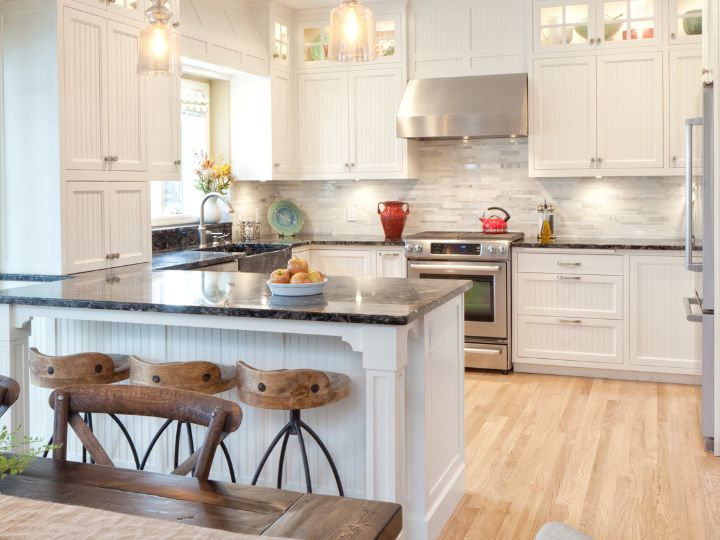
Grand Rapids Climate Considerations for Home Remodeling

Grand Rapids, Michigan's second-largest city, presents unique climate challenges that savvy homeowners must address during remodeling projects. In Grand Rapids, the summers are warm and partly cloudy and the winters are freezing, snowy, windy, and mostly cloudy. Over the course of the year, the temperature typically varies from 18°F to 83°F and is rarely below 3°F or above 90°F. Understanding these dramatic seasonal variations is crucial for making informed remodeling decisions that will enhance comfort, reduce energy costs, and protect your investment for years to come.
Understanding Grand Rapids' Climate Profile
Due to its location east of Lake Michigan, Grand Rapids experiences some maritime effects. The city has relatively mild spring and autumn seasons, warm and humid summers, and cold and snowy winters in a humid continental climate. This unique positioning creates several considerations for homeowners:
Temperature Extremes: The 65-degree temperature swing between winter lows and summer highs places significant stress on building materials and systems. Your remodeling choices must account for this dramatic expansion and contraction cycle.
Humidity Challenges: Grand Rapids experiences considerable humidity during summer months, which can lead to moisture-related issues in poorly ventilated or inadequately sealed spaces. With high temperatures ranging between 78˚F and 82˚F, summer in Grand Rapids offers consistently gorgeous weather. However, this warmth combined with humidity can create uncomfortable indoor conditions without proper climate control.
Precipitation Patterns: The average precipitation is projected to increase by 2.6% by 2022 and 8.5% by 2042. The largest increases in temperature are expected during the winter, while the largest increases in precipitation are expected in winter and spring seasons. This increasing precipitation trend makes moisture management even more critical in remodeling projects.
Insulation: Your Home's Climate Armor
Meeting Michigan's Energy Code Requirements
Michigan is in climate zone 5 through 7, but let's talk more about what that means. Michigan's building code is vastly different than Florida's, for example, due to the differences in temperature fluctuations, relative humidity, and the temperature outside versus inside. Grand Rapids specifically falls within these climate zones, which dictate specific insulation requirements.
For Michigan homes, aim for an R-value between R-13 and R-21 in the cavity of your walls. This will help to keep your space warm and money in your pocket. However, don't stop at just meeting minimum requirements. Homes that lack the right amount of insulation in their attics, walls, and crawl spaces can lose as much as 45% of the heat their furnaces produce in the winter.
Strategic Insulation Upgrades
Wall Insulation: Feel drafts, notice chilly spots, or hear a lot of outdoor noise? These are signs your walls could use an upgrade in the type or amount of insulation. Consider upgrading to higher R-value materials, especially in older Grand Rapids homes where original insulation may have settled or degraded.
Attic Insulation: Think of attic insulation as a warm blanket for your home. But this blanket keeps the heat in and the cold out. This is often the most cost-effective area to upgrade, as heat naturally rises and escapes through inadequately insulated roof areas.
Foundation and Basement Considerations: Foundations types are either full basement, slab-on-grade, or crawlspace. In addition to reducing heating costs, foundation insulation increases comfort, reduces the potential for condensation and corresponding growth of mold, and increases the livability of below-grade rooms.
Moisture Management and Ventilation
Grand Rapids' humid summers and wet springs make moisture control a critical consideration in any remodeling project. Poor moisture management can lead to mold growth, structural damage, and indoor air quality issues.
Basement and Foundation Considerations
Basements are naturally prone to dampness. Waterproofing the space, especially older basements, can involve significant work such as sump pump installation, vapor barriers, or even exterior waterproofing measures. When remodeling basements in Grand Rapids homes, prioritize:
- Professional moisture assessment before beginning work
- Proper vapor barriers and waterproofing systems
- Adequate drainage and sump pump systems
- Proper ventilation to prevent condensation buildup
Whole-Home Ventilation Solutions
Home's today are being built or remodeled with more weather stripping, caulking and insulation becoming both tighter and more energy efficient in the process. The problem? More contaminants are becoming trapped inside our homes. This makes proper ventilation essential.
Modern ventilation solutions include:
- Heat recovery ventilators (HRVs) to maintain fresh air while preserving energy
- Exhaust fans in high-moisture areas like bathrooms and kitchens
- Whole-house air filtration systems to manage indoor air quality
HVAC System Optimization
Sizing and Efficiency Considerations
Grand Rapids' temperature extremes require HVAC systems that can handle both sweltering summer days and frigid winter nights efficiently. In Grand Rapids, HVAC regulations are designed to ensure safety, efficiency, and environmental responsibility. The city adheres to statewide standards set by Michigan's Department of Licensing and Regulatory Affairs (LARA).
Humidity Control Integration
Summers in Grand Rapids can be particularly humid, leading to excess moisture in your home that can cause discomfort and damage. Consider integrating:
- Whole-house dehumidification systems
- Smart thermostats with humidity controls
- Proper ductwork design to manage both temperature and humidity
Windows and Air Sealing
Performance Window Selection
10-15% of your home's thermal energy can be lost through windows and doors. In Grand Rapids' climate, investing in high-performance windows pays dividends through:
- Triple-pane or high-performance double-pane windows
- Low-E coatings to manage solar heat gain
- Proper installation with attention to air sealing
Comprehensive Air Sealing
Caulk and seal air leaks where plumbing, ducting, or electrical wiring comes through walls, floors, ceilings, and soffits over cabinets. Install foam gaskets behind outlet and switch plates on walls. Air sealing is particularly important in Grand Rapids due to the strong winds that can drive air infiltration.
Financial Incentives and Programs
Weatherization Assistance
While individual household results may vary, studies show an average of 15% to 40% reduction of fuel usage after receiving weatherization upgrades. Michigan offers several programs to help homeowners improve energy efficiency:
- Weatherization Assistance Program (WAP) for qualified low-income households
- Utility rebate programs for energy-efficient upgrades
- Federal tax credits for qualifying improvements
Long-term Investment Perspective
Michigan just received a multi-hundred-million funding boost for such efforts in a state with large volumes of older homes, indicating growing support for energy efficiency improvements. With the average Michigan home is 52 years old, compared to a national average of 45, many Grand Rapids homes can benefit significantly from climate-conscious remodeling.
Planning Your Climate-Smart Remodel
Seasonal Timing Considerations
Grand Rapids' distinct seasons affect remodeling schedules. Visit Grand Rapids to experience the magic of distinct seasons. The beguiling blossoms of spring. Long summer days that fade into glorious sunsets. A fall harvest of spectacular color and abundant agriculture. Snowy winter landscapes that are an invitation to play. Plan major exterior work during the moderate spring and fall months, while interior climate system upgrades can be scheduled during shoulder seasons to minimize comfort disruption.
Professional Expertise Matters
Climate-smart remodeling requires expertise in local building codes, weather patterns, and energy efficiency strategies. The complexity of integrating proper insulation, moisture management, and HVAC systems demands professional knowledge of Grand Rapids' specific challenges.
Making It Happen: Your Next Steps
Embarking on a climate-conscious remodeling project in Grand Rapids requires careful planning and the right professional partners. The investment in proper insulation, moisture management, and efficient systems will pay dividends through reduced energy bills, improved comfort, and enhanced home value.
For Grand Rapids homeowners ready to tackle these climate considerations, working with experienced local general contractors who understand the area's unique challenges is essential. Grand Rapids general contractor Thornapple Construction bring the local expertise needed to navigate Grand Rapids' specific climate requirements while ensuring your remodeling project delivers long-term performance and comfort.
The key to successful climate-smart remodeling lies in viewing your home as an integrated system where insulation, air sealing, moisture management, and HVAC work together to create a comfortable, efficient, and durable living environment that can handle whatever West Michigan weather brings your way.

.svg)
.svg)


